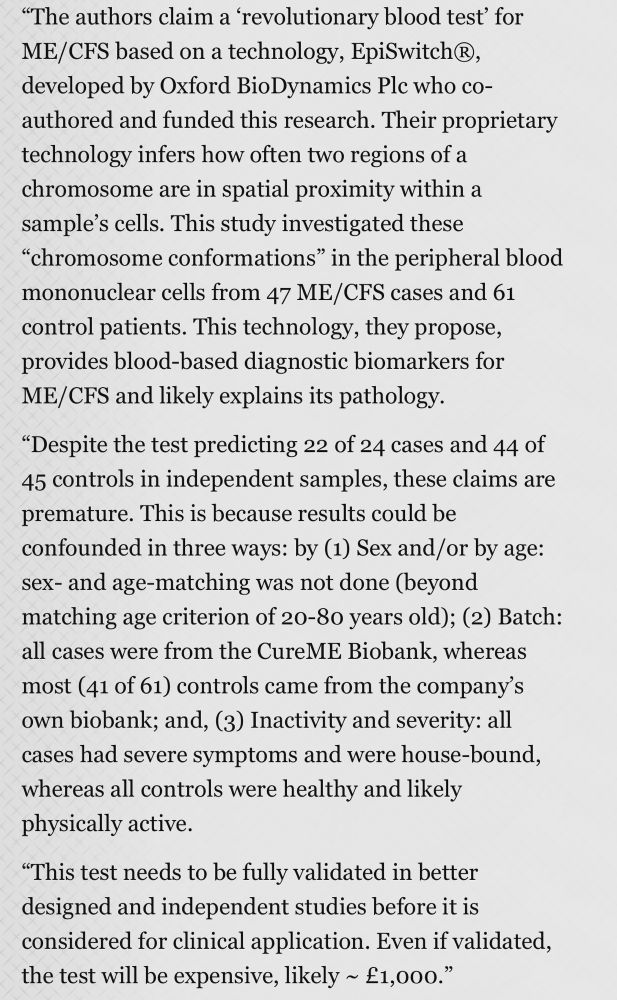Simon McGrath
@simonmcg.bsky.social
560 followers
75 following
150 posts
I occasionally try to explain and comment on ME researchh, or even contribute to it. And I advocate for more and better research.
Posts
Media
Videos
Starter Packs
Reposted by Simon McGrath
Reposted by Simon McGrath
Reposted by Simon McGrath
Reposted by Simon McGrath
Reposted by Simon McGrath
Reposted by Simon McGrath
Reposted by Simon McGrath
Reposted by Simon McGrath
Reposted by Simon McGrath










